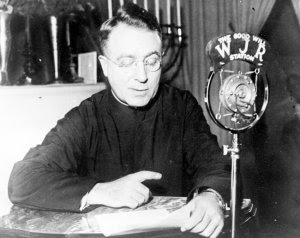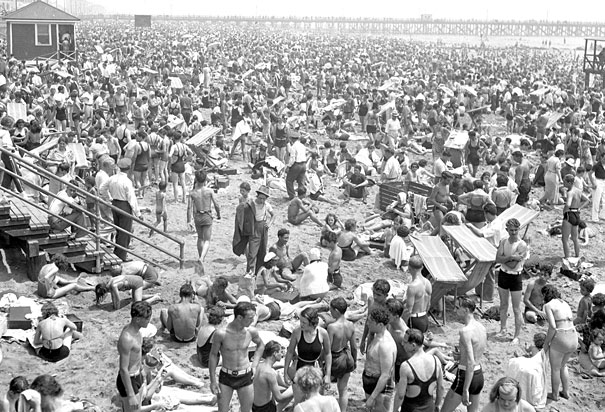Despite the political crisis and dissent in the United States, the nation’s research program was largely going according to schedule. The United States technology was somewhat outdated, and the army was in dire need of upgrades to their now outdated weaponry. Along with that, the United States had practically no tank research to speak of, only being able to produce the severely outdated post-weltkrieg light tanks. The United States was in clear need of more military research, and President Hoover approved more funding towards military testing and development despite the economic crisis looming overhead. In the past few years, the military focus of the United States has largely been on infantry. The U.S. still maintained a few small navies, and before the economic depression the U.S. planned on expanding their infantry forces to something resembling a respectable army for their nation. In February 18, 1936 the new American research program was showing some progress, upgrading the design of their outdated light tanks and immediately getting to work on improved Artillery pieces along with a few other advances.
Fast forward a month, March 17 1936. On the CBS radio stations heard across the nation, a new radio show is broadcasted and more than fifty million people tune in to listen. The show created by Father Charles Coughlin, a raving anti-semite and prominent member of the America First Union. He claims that the syndicalist revolution in France was caused “By the Jew” and the recent downturn of both the American and global economy a “Nation conspiracy by Jewish bankers.” Amazingly enough people still tune in, and he retains a rather large following in the nation. His hate-speech is however not tolerated by the pope, and the papacy asks the United States to shut him down to prevent him from misrepresenting the catholic faith. A few days later the U.S. replies by shutting down Father Charles Coughlin’s broadcasts, banning him from the air. Fans of Father Coughlin across the nation are outraged, especially some of the more radical members of the America First Union.
 Father Coughlin broadcasting his hate-speech over the air.
Father Coughlin broadcasting his hate-speech over the air.Almost a day later, a national disaster strikes the nation. On March 18, warmer than normal temperatures led to melting of ice and snow on upper Allegheny and Monongahela rivers. These rivers already over their banks, quickly flooded the surrounding region including Pittsburgh. With a heavy downpour happening later that day, the flood levels rose to about 46 feet, 21 feet above the flood stage. In what will be regarded as the St. Patrick’s Day Flood, President Hoover upon hearing about this disaster immediately ordered for aid to be sent to Pittsburg and the surrounding region, helping the residents and also helping to calm the political turmoil and improve the general opinion of the current President slightly.
 Two women using a boat to navigate the flooded region around their home.
Two women using a boat to navigate the flooded region around their home.At this point, the U.S. government was desperately trying to calm the dissent surrounding the upcoming elections. Passing multiple bills in hopes of focusing the public’s attention on something other than the election. One of the proposed bills during this general period was the Native American Citizenship Act of 1936. The bill would elevate the position of the indigenous population from second class citizens to first. This bill was easily passed in congress, and native americans across the nation rejoiced as they were finally being treated as an actual citizen of the United States. Though this calm tensions for a short span of time, the focus of America quickly returned to the daily fight of political ideologies and the upcoming presidential election.
On May 8, 1936 the Third Internationale Congress. A meeting between all of the syndicalist nations of the world to discuss common interests and goals for the future. The congress at the Third Internationale made an extremely bold and radical announcement within the first week of the congress, all agreeing that each nation would do everything they can to overthrow the international bourgeois. This announcement infuriated the German Empire and its allies, and they themselves announced that they would defend against the approaching influence of radical socialists wherever it was to be found. Another announcement made during this congress, affected the U.S. in particular. John “Jack” Reed, member of the CSA attended this congress. All of the syndicalist nations of the world listen to his request for help in America, requesting financial aid and political support for the workers plight. To the shock of the United States government, both the Union of Britain and Commune of France pledged to help the CSA however they could, and in the following month there was a surge of popularity for the CSA throughout the U.S. much to the dismay of right-wing politicians.
 Members of the Third Internationale Congress meet to discuss the fate of Syndicalism in the world.
Members of the Third Internationale Congress meet to discuss the fate of Syndicalism in the world.In June of 1936, the United States of America had the rare chance to forget about any political woes, the Olympic Games of 1936 have officially begun. Although a small-player in international politics, the United States had a large selection of talented athletes that they sent to the Olympic Games. On the 8th day of June, citizens of the United States were ecstatic to learn that Jesse Owens won two golden medals. One on the two hundred meter dash, and the long jump. This victory, along with a few other gold medals won served as a brief ray of hope in the current dark times.
 Jesse Owens during the 200m dash.
Jesse Owens during the 200m dash.Although unfortunately, the United States string of good luck ended near mid-June. Temperatures began to rapidly rise, and by late June the average temperature reached over 100+ Fahrenheit. The drought conditions worsened due to lack of rain, and by July some states had temperatures as high as 120 Fahrenheit. This does nothing to calm the political dissent in America, and syndicalist and socialist mobs and militias begin to form in the Great Lakes region. The drought continues throughout July, with a reported 3,000 deaths as water is unavailable in some regions of the United States. Corn and Wheat prices rapidly grew, as farmers had one of the worst harvests in American history, and the heat wave didn’t seem like it was going to end any time soon.
 Inhabitants of New York crowd to the beach, to get a break from the intense heat.
Inhabitants of New York crowd to the beach, to get a break from the intense heat.
 Poll
Poll
 Author
Topic: The Disunited States of America (Darkest Hour: Kaiserreich) (Read 40984 times)
Author
Topic: The Disunited States of America (Darkest Hour: Kaiserreich) (Read 40984 times)


